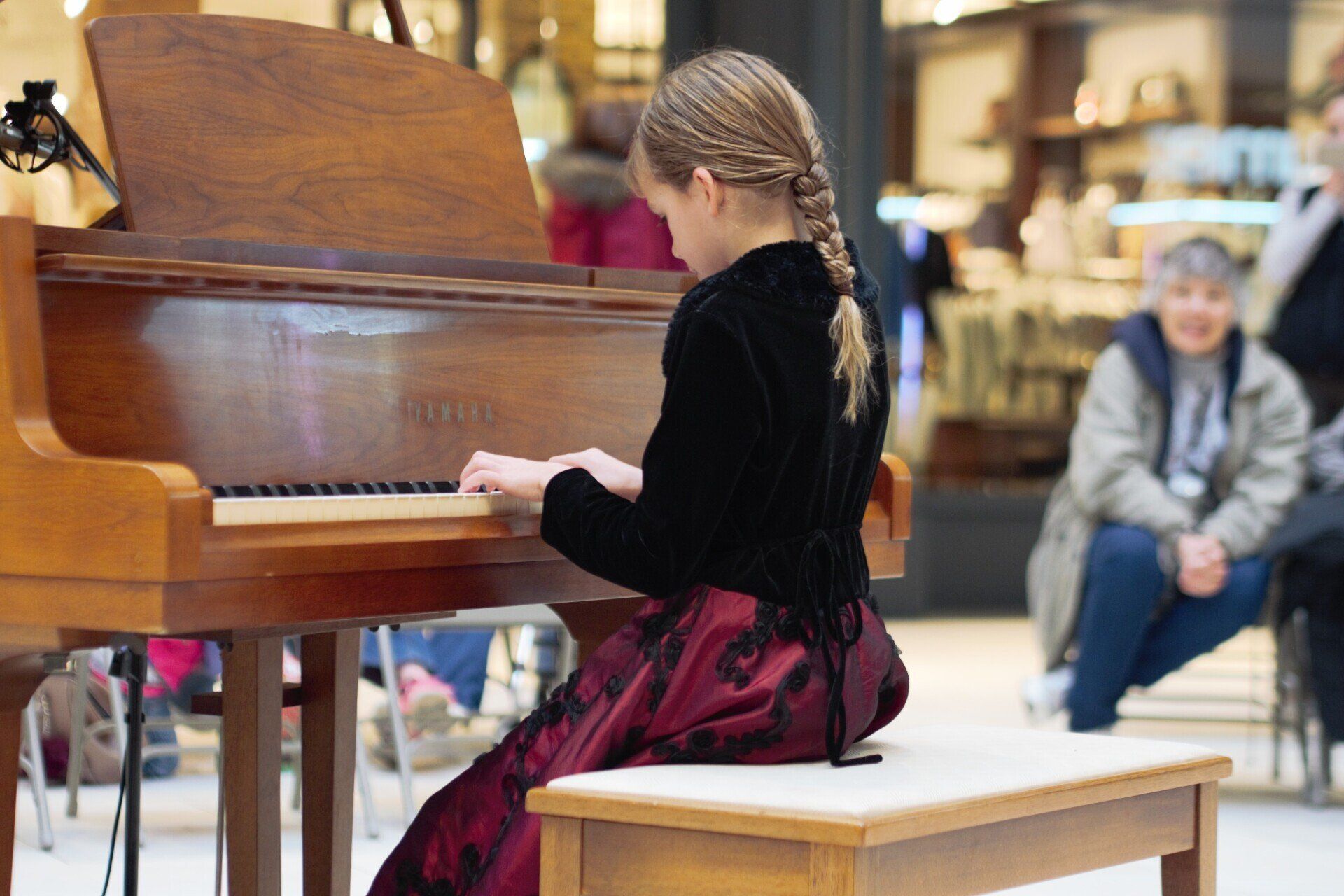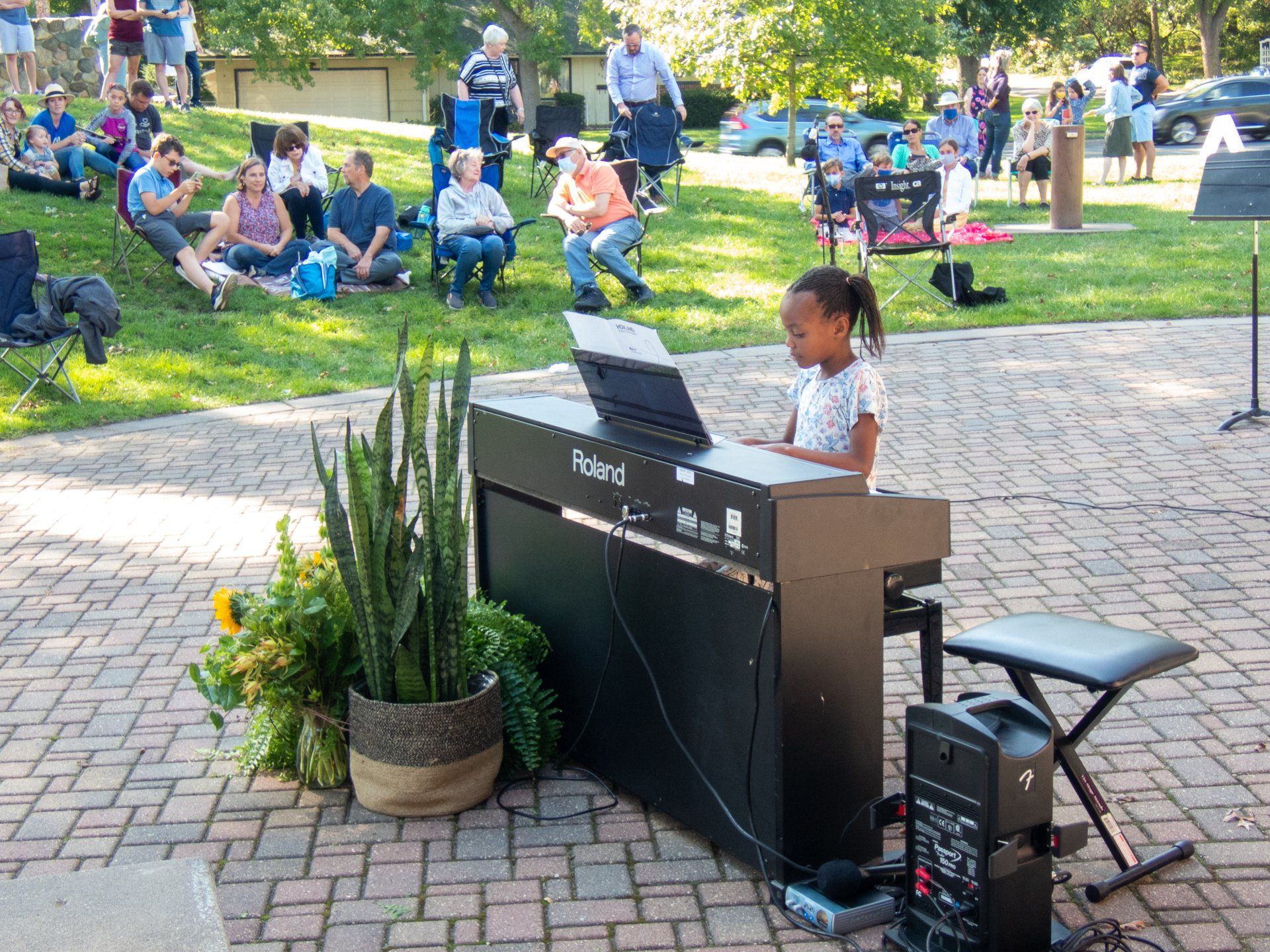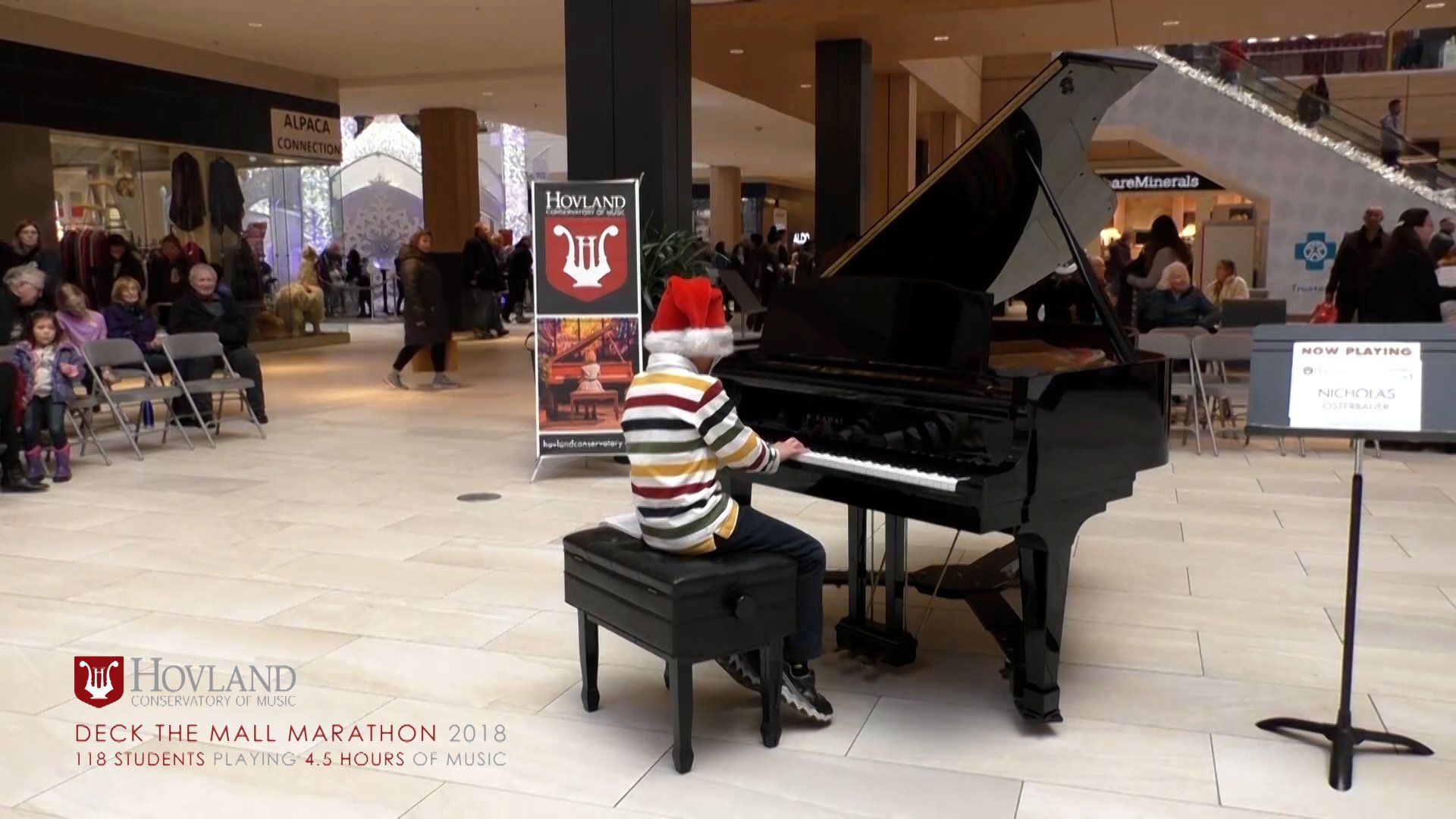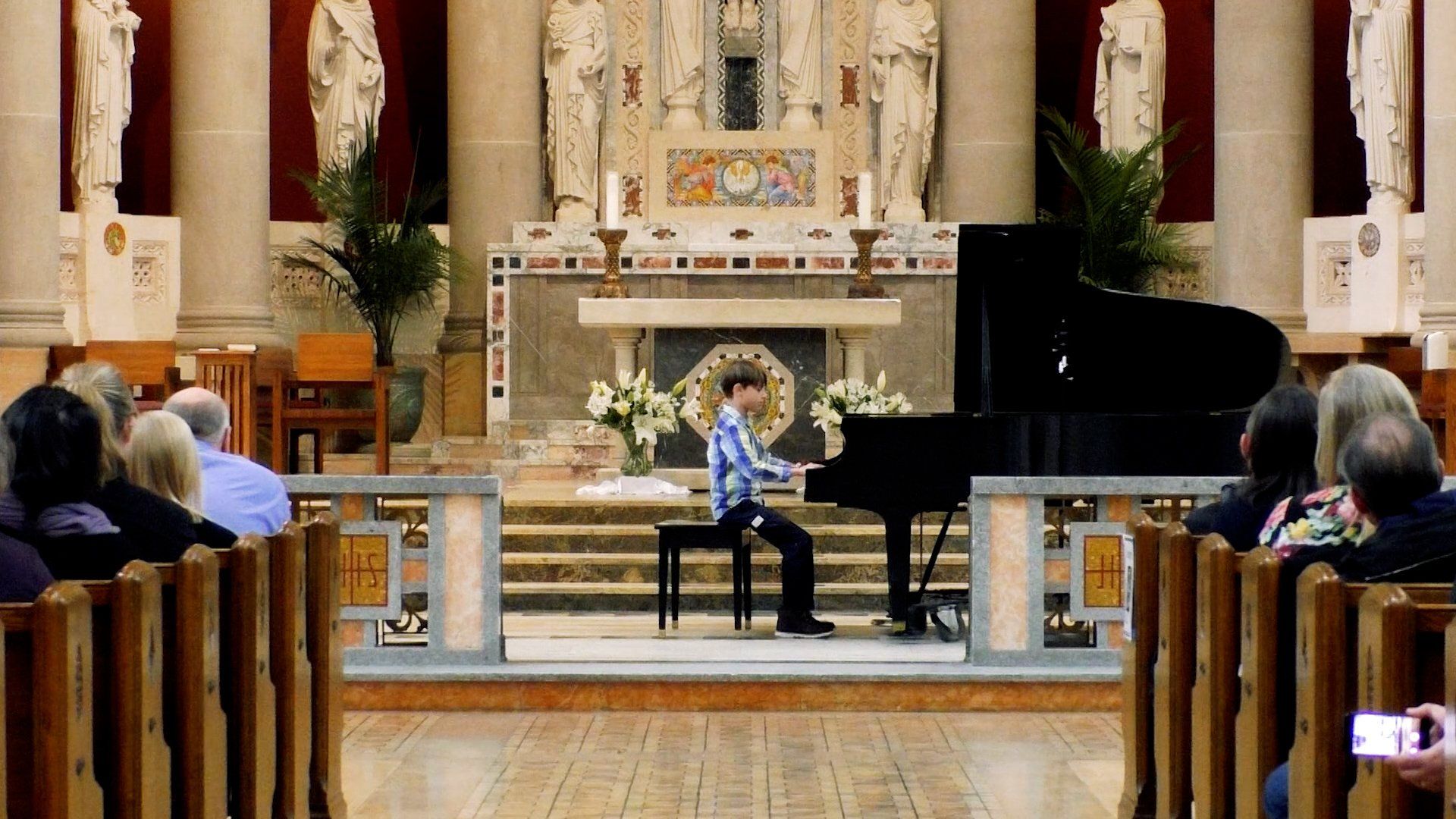BE
SUCCESS STARTS HERE
Everyone can & everyone should
Be amazing at Hovland. Our proven approach removes the guesswork from music lessons and delivers meaningful results for learners of all ages. Whether starting in kindergarten or picking up an instrument later in life, students learn better, faster, and more deeply through our thoughtful and balanced curriculum. Give your child, or yourself, the gift of music, a skill that lasts a lifetime. Scroll down for programming options or click below to jump to your age range.
SOMETHING FOR EVERYONE
30 YEARS OF EXPERTISE
your piano & violin specialists
As a non-profit music school with more than three decades of experience, our piano and violin lessons are thoughtfully designed to support every stage of a student’s cognitive and motor development. Through our proprietary curriculum and numerous performance opportunities, students learn faster, grow socially and intellectually, and discover the joy of making music.
Every Good Boy Does Fine? Not necessarily
For many, "Every Good Boy Does Fine" is the only thing they remember from years of music lessons. It's a well-known trick, but one that often makes reading music harder, not easier. The truth is, not all schools are created equal, and the right foundation makes all the difference.
At Hovland, our thoughtfully designed learning process builds confidence and skill from the very first lesson. We help students avoid the common frustrations that lead so many to struggle or give up. Don’t leave your music education to chance. Discover the Hovland difference
DESIGNED FOR PROGRESS
A BETTER WAY
Proven Curriculum + Certified Teachers = Real ResulTS
At Hovland, every teacher is trained to guide students through our step-by-step piano and violin curriculum, designed to build skill, technique, and confidence at every level. Parents see steady progress, while students enjoy how quickly they advance, whether learning to read music, master technique, or shine in performance.
TESTIMONIALS
what parents are saying
STUDENT PERFORMANCES
Watch our amazing students shine!
CONTACT US
Have a question? Fill out the form below. We would love to hear from you.




